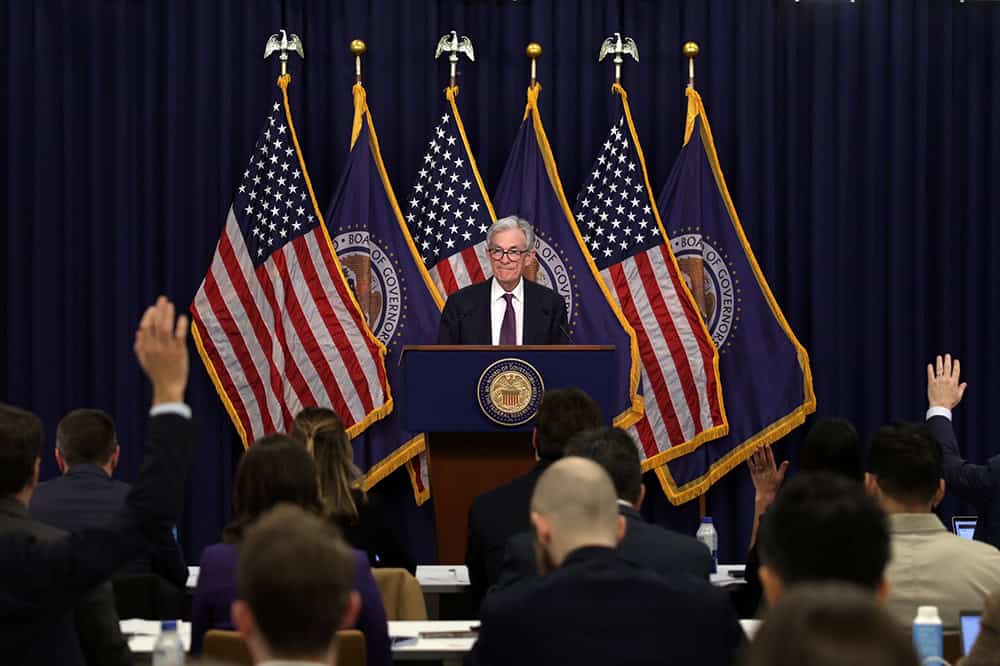Americans Rank Country’s Growing Budget Challenges, Debt, and Deficit as a Top Priority for Obama Administration
Support is Strong for Bipartisan Task Force to Address U.S. Fiscal Challenges
NEW YORK/WASHINGTON, DC (March 4, 2009) — Peter G. Peterson Foundation President David M. Walker was joined by Sen. Judd Gregg (R-NH), Rep. Jim Cooper (D-TN) and Rep. Frank R. Wolf (R-VA) to discuss new findings of the most comprehensive study of public attitudes toward America’s fiscal policies since the economic downturn.
The results of the national survey, commissioned by the Foundation and released today, show that amidst the current economic crisis, there is strong consensus about the fundamental importance of the country’s sustained fiscal health, and that Americans place a high priority on tackling the federal government’s growing budget deficit and debt. The results also show broad support for a bipartisan, beyond-the-Beltway approach to tackling these challenges in the form of a commission that would engage the public and make a series of recommendations on which Congress would be required to vote. Senator Gregg and Congressmen Cooper and Wolf, who joined Walker to discuss the findings, are key sponsors of legislation that would create such a commission.
“As usual, Americans are way ahead of Washington policymakers — many of whom who don’t seem to realize that we can’t spend and borrow our way to prosperity,” said Walker, who served as US Comptroller General from 1998-2008. “It’s clear from these survey results that as Americans struggle through hard economic times, they have grown increasingly anxious about growing deficits and debt and Washington’s historical inability to make tough but necessary choices to address them.”
Also among the survey’s findings:
– Voters rank the need to address our budget challenges as a top priority for the Obama Administration, second only to the preeminent need to get the economy back on track and get Americans back to work.
– Americans see the threat to our future posed by our growing deficit and debt as more grave and significant than global warming, declines in education and manufacturing, and the prospect of a rogue nation developing a nuclear weapon.
– Voters are evenly split (45% to 44%) between those who believe major structural reforms — such as cutting spending or raising taxes are required to address our fiscal challenges, and those who believe that simply cutting waste and abuse in government spending, along with reducing funding for the Iraq war, would be sufficient.
– By a significant margin (56% to 30%), voters prefer a bipartisan commission to the regular congressional process as the best means to begin tackling our growing budget deficit and national debt.
The survey was conducted among 1,008 registered voters from February 18-23 by leading pollsters Peter D. Hart Research Associates and Public Opinion Strategies and has a margin of error of +/-3.1%.
Since its launch in July 2008, the Peter G. Peterson Foundation has invested nearly $11 million in grants to raise awareness of, and seek solutions to the fiscal challenges posed by the rising costs of health care and retirement and a near-zero household savings rate. To address these challenges successfully, the nonpartisan Foundation works to bring Americans together to find sensible, long-term solutions that transcend age, party lines and ideological divides. The Foundation also distributes the critically acclaimed feature documentary I.O.U.S.A., which tells the story of the rapidly growing national debt and its consequences for the U.S. economy.
Further Reading
Budget Basics: Unemployment Insurance Explained
The Unemployment Insurance program is a key counter-cyclical tool to help stabilize the economy and speed recovery during downturns or crises.
Quiz: How Much Do You Know About Healthcare in the United States?
The United States has one of the largest and most complex healthcare systems in the world. Take our healthcare quiz to see how much you know about the cost and quality of the U.S. healthcare system.
The Fed Reduced the Short-Term Rate Again, but Interest Costs Remain High
High interest rates on U.S. Treasury securities increase the federal government’s borrowing costs.


